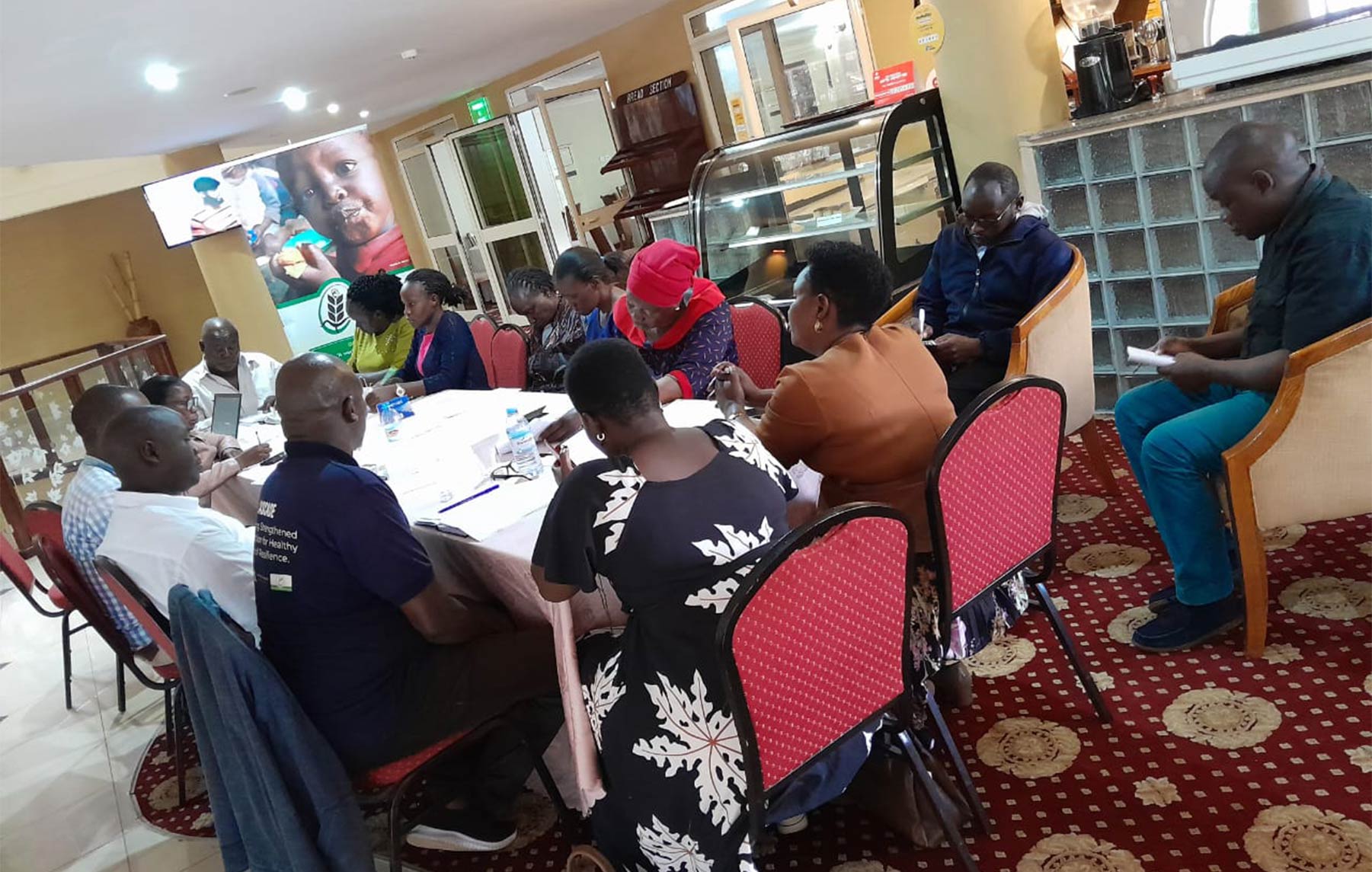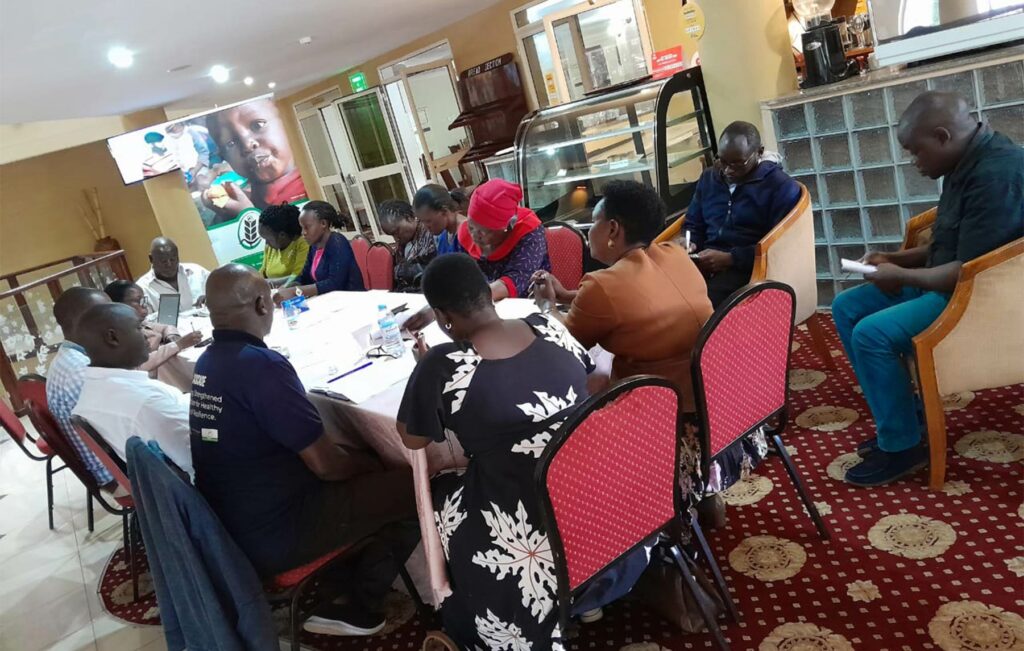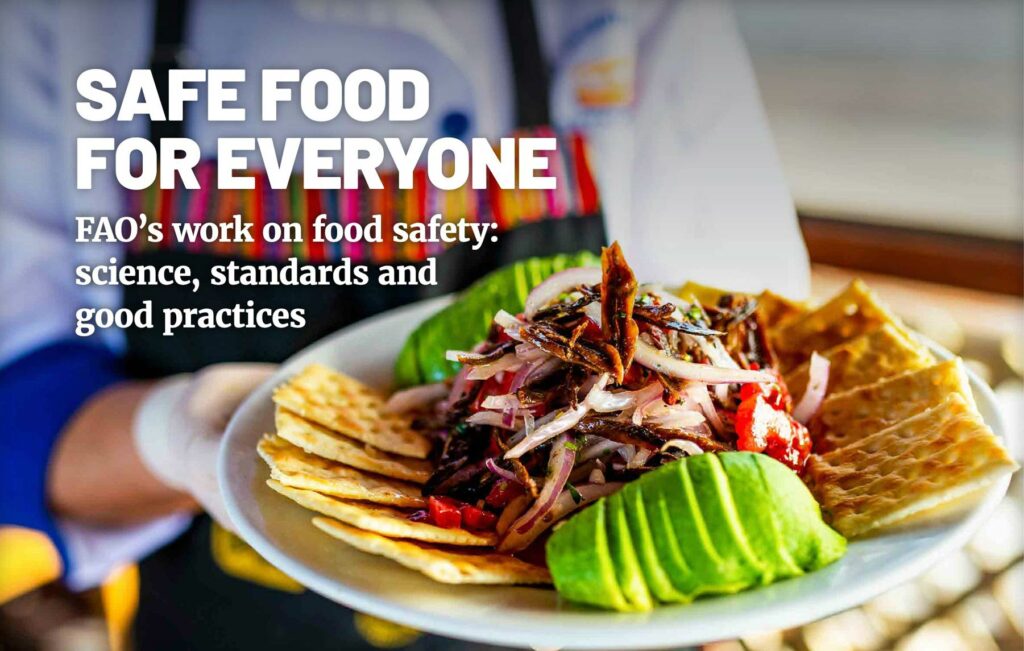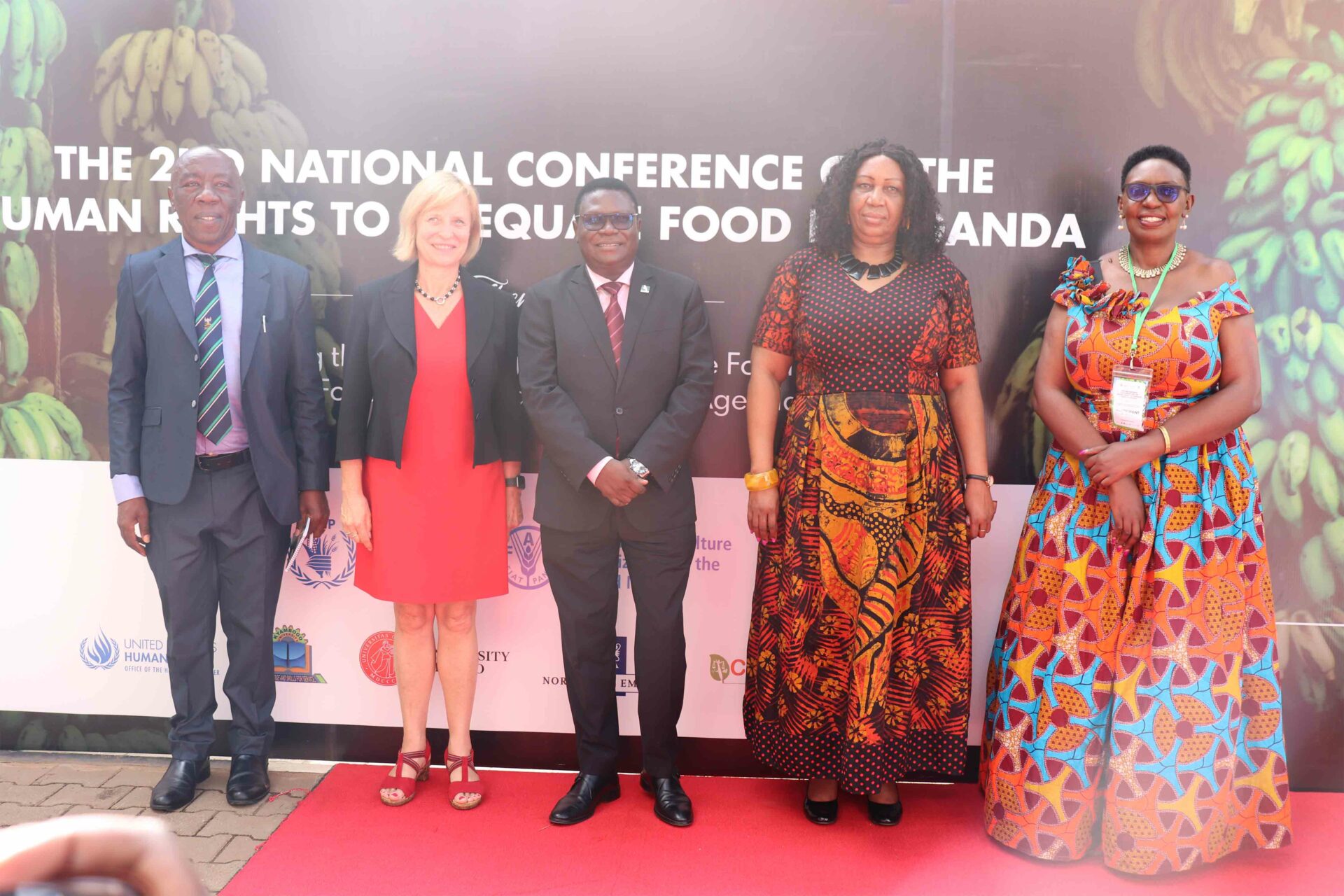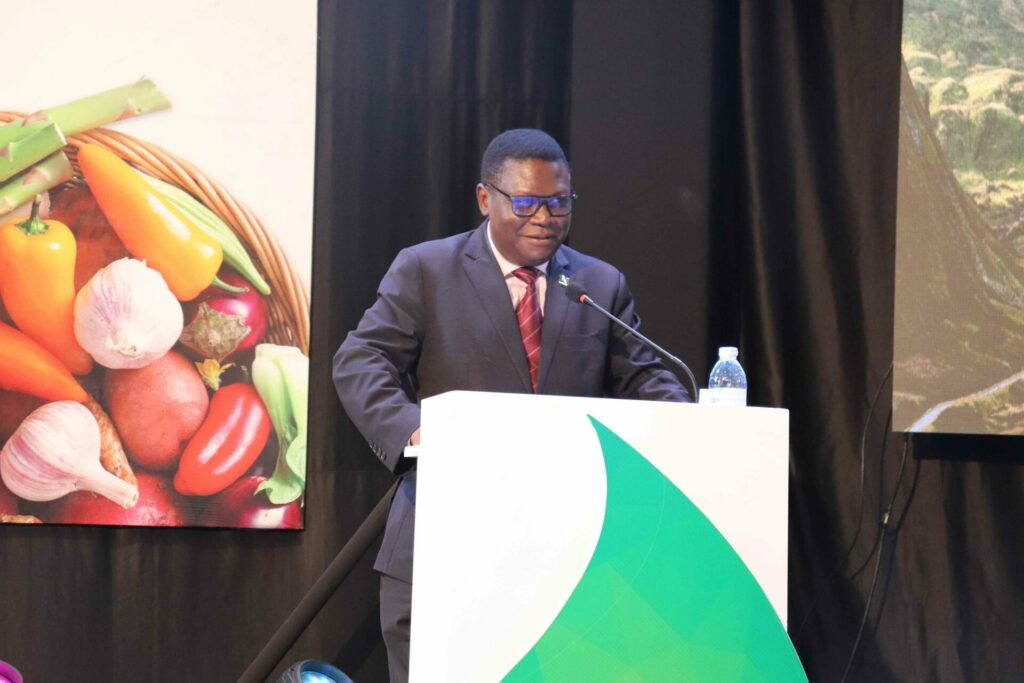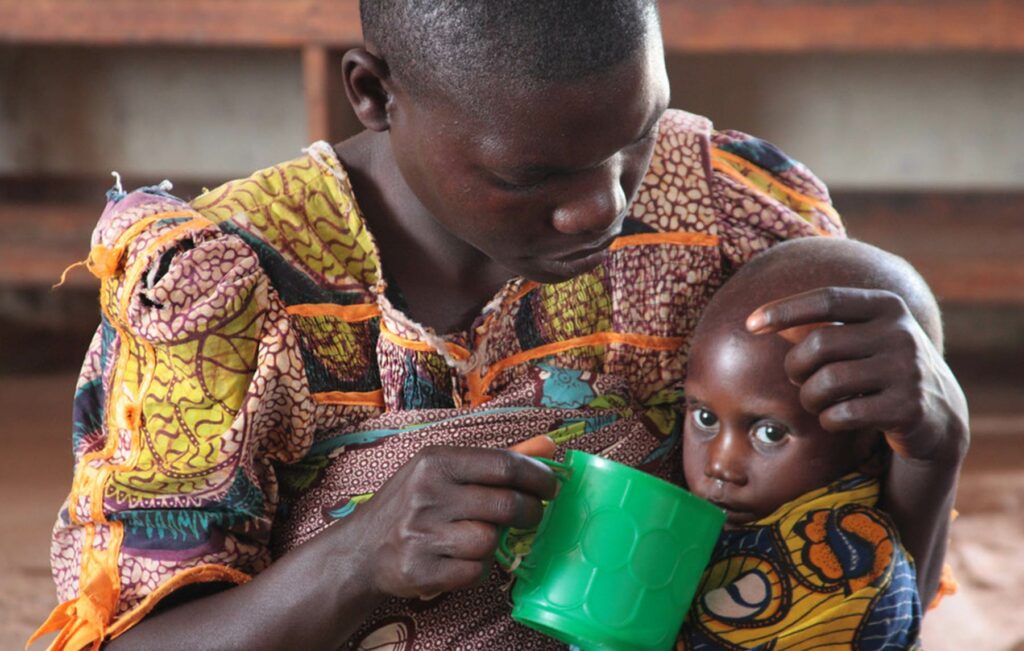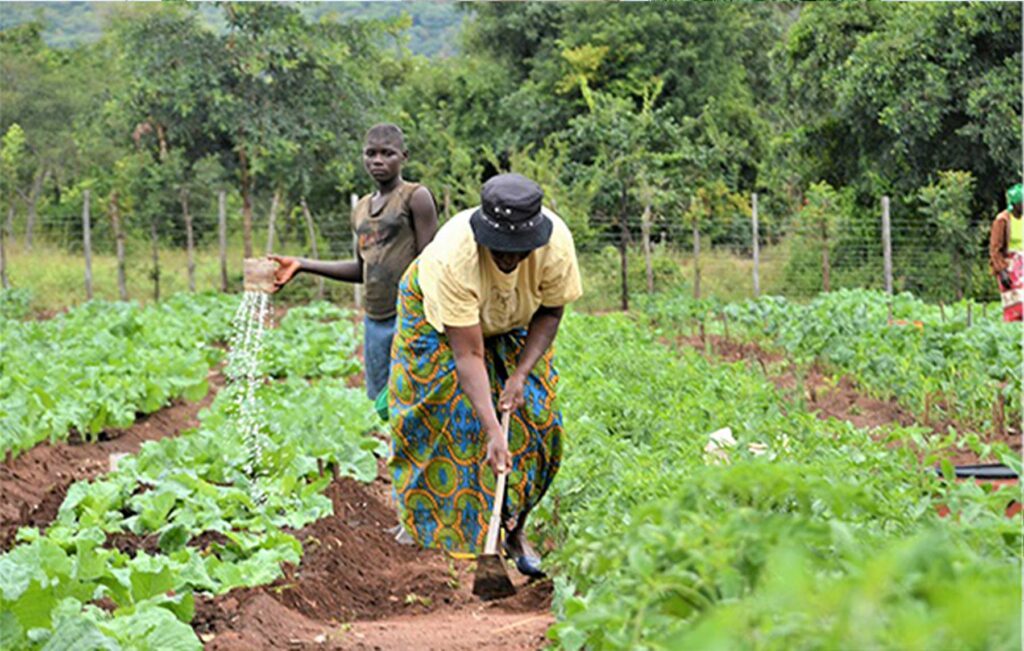To address this pressing issue and explore its implications on national development, the Food Rights Alliance (FRA) organized a Write Shop on 23rd June 2023, at the Piato Hotel in Kampala. The event aimed to develop a comprehensive position paper on the far-reaching effects of aflatoxins and strategize actionable steps towards mitigating their impact.

Photography Credit: Food Rights Alliance
The Write Shop commenced with a warm welcome from Ms. Agnes Kirabo, the esteemed Executive Director of the Food Rights Alliance (FRA). In her opening remarks, Ms. Kirabo emphasized the critical role of research, knowledge-sharing, and collaboration in tackling challenges related to food safety and national development. She highlighted the urgent need for evidence-based policy formulation and implementation to safeguard the well-being of Ugandans and promote sustainable economic growth. Ms Kirabo expressed her gratitude to all the participants, partners, and stakeholders for their commitment to addressing the issue of aflatoxins and fostering positive change in the country.
Following the welcoming remarks, Esther Namirimu, the Program Officer of Advocacy and Communications at FRA, delivered an insightful overview of aflatoxins. Ms Namirimu shed light on the nature of these mycotoxins, their sources, and the various ways they contaminate food crops, particularly maize, groundnuts, and other staple commodities. She emphasized that aflatoxins not only pose immediate health risks to consumers but also hinder agricultural productivity and trade, leading to significant economic losses. The presentation underscored the far-reaching impact of aflatoxins on the overall health and development of communities, especially vulnerable populations such as children, pregnant women, and individuals with compromised immune systems.
With the groundwork laid by Ms. Namirimu’s presentation, the Write Shop participants delved into the development of a comprehensive position paper on the impact of aflatoxins on national development. The strategy aimed to ensure a well-structured and evidence-based document that would resonate with policymakers, researchers, and other stakeholders. The paper’s development process involved the following key steps:
Data Collection: Participants collaboratively gathered data from various sources, including research papers, reports, and case studies, to provide a comprehensive understanding of the issue.
Analysis and Synthesis: The collected data was carefully analyzed and synthesized to draw connections between aflatoxin contamination, health outcomes, food security, and economic development.
Identification of Challenges and Opportunities: The Write Shop participants worked collectively to identify existing challenges in tackling aflatoxin contamination and explored potential opportunities for interventions and partnerships.
Policy Recommendations: The paper’s development strategy focused on formulating actionable policy recommendations that could effectively address the impact of aflatoxins on national development.
Engaging Stakeholders: Throughout the Write Shop, the participants emphasized the importance of engaging policymakers, researchers, farmers, and consumers in the fight against aflatoxins.
The Write Shop on the Impact of Aflatoxins on National Development at Piato Hotel, Kampala, served as a crucial milestone in addressing a critical issue affecting Uganda’s food safety and economic growth. Participants’ dedication to developing a comprehensive position paper and crafting actionable policy recommendations demonstrated a shared commitment to safeguarding public health and promoting sustainable development. The collaborative efforts showcased during the Write Shop reflect the power of collective action in addressing complex challenges and building a healthier, more prosperous nation.
As the event concluded, all stakeholders were left with a renewed sense of purpose and determination to effect positive change in their communities and contribute to the nation’s overall development. The position paper will serve as a guiding document for future interventions and advocacy efforts to combat aflatoxin contamination and drive progress towards a safer, more food-secure Uganda.
By Esther Namirimu Robinah
Program Officer Advocacy and Communications

